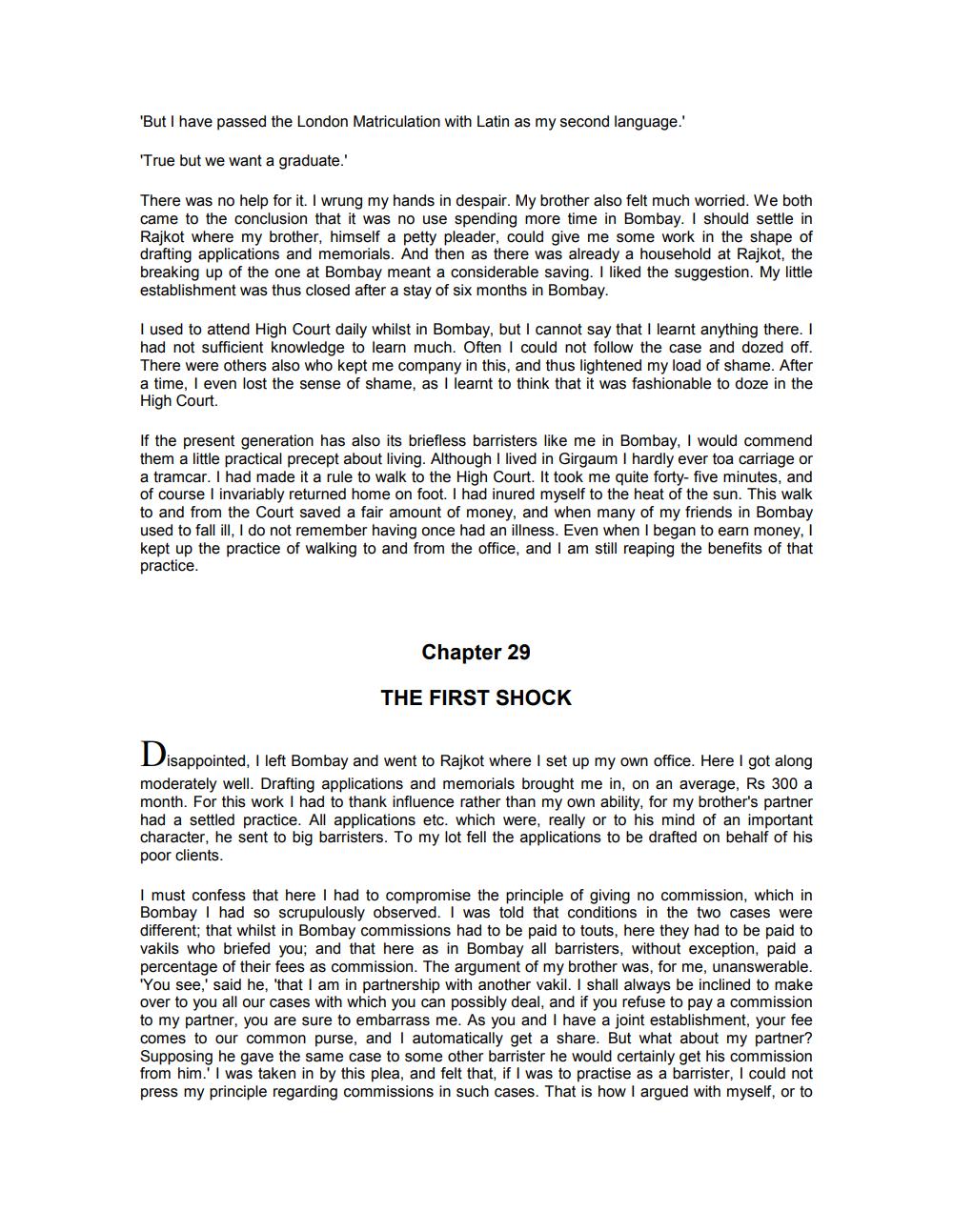________________
'But I have passed the London Matriculation with Latin as my second language.'
'True but we want a graduate.'
There was no help for it. I wrung my hands in despair. My brother also felt much worried. We both came to the conclusion that it was no use spending more time in Bombay. I should settle in Rajkot where my brother, himself a petty pleader, could give me some work in the shape of drafting applications and memorials. And then as there was already a household at Rajkot, the breaking up of the one at Bombay meant a considerable saving. I liked the suggestion. My little establishment was thus closed after a stay of six months in Bombay.
I used to attend High Court daily whilst in Bombay, but I cannot say that I learnt anything there. I had not sufficient knowledge to learn much. Often I could not follow the case and dozed off. There were others also who kept me company in this, and thus lightened my load of shame. After a time, I even lost the sense of shame, as I learnt to think that it was fashionable to doze in the High Court.
If the present generation has also its briefless barristers like me in Bombay, I would commend them a little practical precept about living. Although I lived in Girgaum I hardly ever toa carriage or a tramcar. I had made it a rule to walk to the High Court. It took me quite forty-five minutes, and of course I invariably returned home on foot. I had inured myself to the heat of the sun. This walk to and from the Court saved a fair amount of money, and when many of my friends in Bombay used to fall ill, I do not remember having once had an illness. Even when I began to earn money, I kept up the practice of walking to and from the office, and I am still reaping the benefits of that practice.
Chapter 29
THE FIRST SHOCK
Disappointed, I left Bombay and went to Rajkot where I set up my own office. Here I got along moderately well. Drafting applications and memorials brought me in, on an average, Rs 300 a month. For this work I had to thank influence rather than my own ability, for my brother's partner had a settled practice. All applications etc. which were, really or to his mind of an important character, he sent to big barristers. To my lot fell the applications to be drafted on behalf of his poor clients.
I must confess that here I had to compromise the principle of giving no commission, which in Bombay I had so scrupulously observed. I was told that conditions in the two cases were different; that whilst in Bombay commissions had to be paid to touts, here they had to be paid to vakils who briefed you; and that here as in Bombay all barristers, without exception, paid a percentage of their fees as commission. The argument of my brother was, for me, unanswerable. 'You see,' said he, 'that I am in partnership with another vakil. I shall always be inclined to make over to you all our cases with which you can possibly deal, and if you refuse to pay a commission to my partner, you are sure to embarrass me. As you and I have a joint establishment, your fee comes to our common purse, and I automatically get a share. But what about my partner? Supposing he gave the same case to some other barrister he would certainly get his commission from him.' I was taken in by this plea, and felt that, if I was to practise as a barrister, I could not press my principle regarding commissions in such cases. That is how I argued with myself, or to




